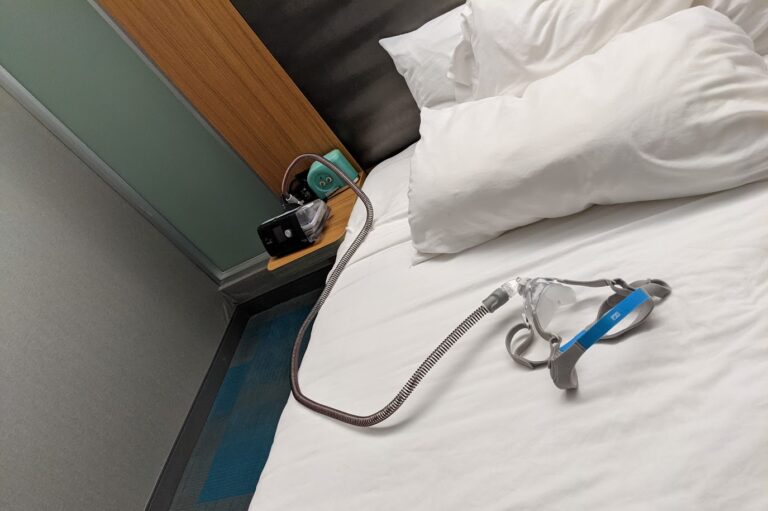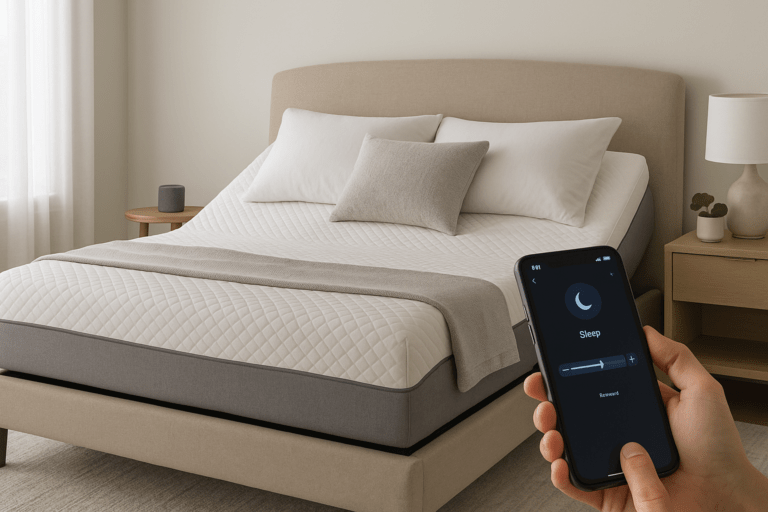
6 Ways to Combat Oxidative Stress and Improve Sleep
Oxidative stress and inflammation might be silently robbing you of restful sleep, leaving you feeling tired and achy. By making simple lifestyle changes, you can reduce these hidden disruptors and wake up feeling refreshed and pain-free.
Oxidative Stress: The Unseen Culprit Behind Poor Sleep and Health
When we talk about sleep, most people focus on external factors like the quality of their mattress or noise in their environment. However, there’s an internal issue that often gets overlooked—oxidative stress. This invisible imbalance in the body can significantly impact your sleep quality and overall health, contributing to pain and other health issues.
According to Dr. Doni, a leading expert in integrative health, oxidative stress occurs when there’s an imbalance between free radicals and antioxidants in the body. These free radicals are unstable molecules that can cause damage to cells, while antioxidants neutralize them to maintain balance. If oxidative stress is left unchecked, it can lead to cell and tissue damage, accelerating aging and increasing the risk of chronic diseases like heart disease and diabetes. One of the most immediate effects of oxidative stress is how it disturbs sleep and causes pain.
How Does Oxidative Stress Impact Sleep?
Sleep is a vital process where the body undergoes repair and recovery. However, when oxidative stress is present, the body’s ability to heal is hindered. Dr. Doni highlights fatigue, memory issues, and even premature aging as signs that your body is struggling with oxidative stress. Fatigue is often one of the first indicators that your sleep cycle is being affected. Instead of waking up refreshed, you might find yourself constantly tired, even after a full night of sleep.
Oxidative stress can also trigger inflammation, which disrupts the body’s circadian rhythm—our internal clock that regulates sleep-wake cycles. When inflammation is high, it can interfere with melatonin production, making it harder to fall asleep or stay asleep throughout the night. Chronic inflammation, in particular, is closely tied to conditions like sleep apnea and insomnia.
The Link Between Oxidative Stress and Pain
Pain, especially chronic pain, is another side effect of oxidative stress that can keep you from getting restful sleep. Dr. Doni notes that oxidative stress can accelerate the aging process, leading to conditions like arthritis, joint pain, and other inflammatory disorders. If your body is under constant oxidative stress, your pain levels might increase, which in turn makes it harder to sleep—a vicious cycle that many people struggle to break.
6 Ways to Combat Oxidative Stress and Improve Sleep
So, what can you do to reduce oxidative stress and improve your sleep? According to Dr. Doni, the first step is adopting a lifestyle that minimizes exposure to free radicals and maximizes your intake of antioxidants. Here are a few key strategies to consider:
1. Meal Plan (Diet): Increase your intake of antioxidant-rich foods like berries, nuts, green tea, and leafy greens. Avoid processed foods, sugars, and environmental toxins that promote oxidative stress.
2. Herbal Supplements: Certain supplements, such as vitamin C, vitamin E, and glutathione, are powerful antioxidants that can help balance free radicals in your body.
3. Exercise: Regular physical activity can boost your body’s antioxidant defenses, although too much intense exercise can increase oxidative stress. Aim for a balanced routine.
4. Sleep Hygiene: Create an environment conducive to good sleep by reducing noise, light, and stress before bed. Incorporate relaxation techniques like meditation to calm your body and lower inflammation levels.
5. Reduce Toxins: Avoid exposure to pollutants, pesticides, and other toxins that contribute to oxidative stress. Opt for organic foods and clean household products.
6. Reduce Back Pain: Your mattress is crucial for minimizing oxidative stress caused by poor sleep posture and discomfort. A mattress designed to reduce back pain and provide pressure relief can help lower inflammation and allow your body to heal and rest properly throughout the night. Look for mattresses with proper support and materials that align with your body’s needs for both comfort and recovery.
By addressing oxidative stress, you can significantly improve not only your sleep quality but your overall well-being. If you’re waking up tired or struggling with chronic pain, it may be time to consider how this hidden factor is affecting your health.
Final Thoughts on Oxidative Stress and Getting Better Sleep
Oxidative stress is a complex issue that impacts various aspects of our health, including our ability to get restorative sleep. The good news is that with the right lifestyle changes, you can reduce oxidative stress and its harmful effects. As Dr. Doni advises, focusing on nutrition, stress reduction, and toxin avoidance can go a long way in protecting your body from free radical damage, ultimately leading to better sleep and a healthier, pain-free life.




